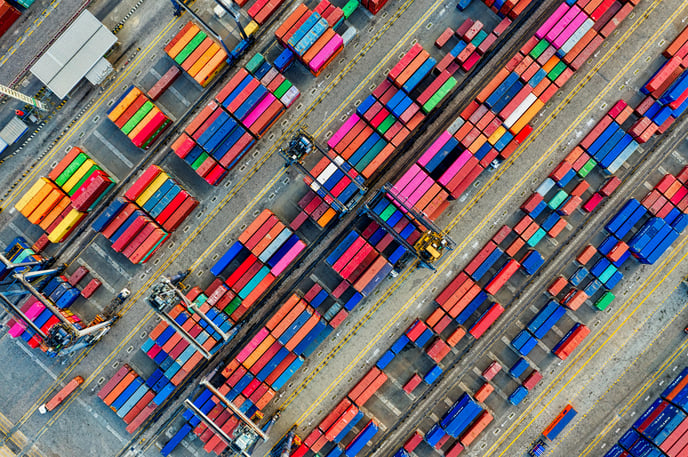Empowering Procurement Professionals To Accelerate Sustainability
Everything comes from nature at some point. No matter how ‘processed’ something is, the raw materials to make it came from a natural system, and, eventually will have to return to one. That means, everything we design, buy and consume must be made with the intent to be part of a circular system that sustains, and even regenerates, the planet. For Business & Finance recently, Head of Research and Innovation at Future Planet Ingrid De Doncker, discussed the ever-growing importance for the enterprises of today to build out a sustainable supply chain.
On average 50% of the turnover of any company is spent with third-party providers and suppliers. Optimising this interaction is critical to the competitiveness — indeed the survival — of the business. This core capability has become even more important in the context of the additional disruptions that companies and the planet are facing today. An optimised supply chain that is sustainable is becoming an existential issue for today’s enterprises.
As procurement professionals, we have a responsibility to consider all the relevant impacts of buying decisions on the business, environment and society. Short-term gains are exposed and long-term benefits can only be achieved when we consider the impact of our decisions using the seventh generation rule – that decisions people take today need to have a sustainable outcome for the seventh generation into the future.
With COVID-19, climate change and increasing social disparity, companies recognise the need for a new commercial operating model. This model is organised around principles of planet, people, and prosperity. However, the profound disruption to economies and businesses caused by COVID-19 has shone a spotlight on the vulnerability of global supply chains, delivering an urgent call to businesses to re-evaluate supply chain practices.
The training requirements are now much broader, and the impact of the sustainable agenda has never seen such opportunities. With procurement and supply chain best practices at the centre, companies need to learn how to build their roadmaps for future sustainable growth.
A study by the Massachusetts Institute of Technology on the State of Supply Chain Sustainability revealed COVID-19 would drive changes in corporate supply chains. It noted 2021 will be characterised by a redesign, with a re-evaluation of supply chains, including sustainability. This was to be the top priority coming out of the pandemic. The study found 84% of executives agreed sustainability is becoming part of supply chain professionals’ core responsibilities in the long term and two-thirds foresaw higher investment in supply chain sustainability in the post-pandemic recovery.
This aligns with our own research in 2020, which showed a clear desire by businesses to benchmark the current state of their procurement efforts (72%) and collaborate with peers on investments to maximise procurement’s efforts. We know there is an urgent need to invest in futureproofing businesses, specifically around performance optimisations and training to upskill procurement and supply chain teams with sustainable best practices. We also know the pace of today’s environment demands that organisations develop their staff to keep up with new initiatives and technologies.
Competency building around sustainable procurement and supply chain applies to everyone in the production and consumption chain of a product’s life cycle. We need to enhance our mindset with the right skills and knowledge to promote cradle to cradle thinking, which will result in eliminating waste by repurposing resources from one lifecycle phase for use to another. We also need to be looking at cause and effect, consequences and potential. It is not aspiration, it is essential. There is an urgent need to move to sustainable business models and to collaborate more purposefully with our supply chain.
And for businesses, sustainability is now at the core of business objectives. Safeguarding society, economy and environment are centre stage, as regulatory and legislative requirements can soon be mandated by the EU Commission and the US Streamlined Energy and Carbon Reporting (SECR). Procurement professionals need to be empowered to spend the money wisely, need to get suppliers involved early to benefit from their sustainability expertise to produce, buy or design the product. It is the reason we launched Future Planet recently, a cloud-based platform that maps out, and builds, a company’s sustainability journey, defining target outcomes and enabling an actionable plan. It removes barriers for responsible business leaders who are trying to empower their teams to collaborate on sustainability projects but who struggle because of a lack of time or knowledge.
The benefits of collaboration are enormous. From a Sustainable Supply Chain perspective in Ireland, as per the latest Carbon Disclosure Project (CDP) supply chain report February 2021, supply chain emissions alone are 11.4 times more than a company’s direct operations. Ireland is ranked 11th out of the EU15 on the Sustainable Development Goals (SDGs) Sustainable Progress Index 2019. A need for dramatic improvement is evident, particular on the need to upskill procurement and supply chain professionals.
We are seeing that in the public sector, Green Public Procurement (GPP) is high on the policy agenda particularly with the renewed focus on achieving net-zero emissions by 2050 and the commitments made at COP26. The mandate towards greater implementation of GPP from 2023 onwards, will drive tenderers for government contracts to develop their green credentials. Businesses that do not comply with the GPP requirements are set to lose out, according to A&L Goodbody, on the €15bn annual public procurement expenditure on works, supplies and services in Ireland.
Sustainability is at the centre of best procurement practices in the private and public sector. It is invaluable for all stakeholders at the triple bottom line table to understand sustainable procurement, and the impact of optimal buying decisions for many generations to come.
A version of this article first appeared in Business & Finance on December 6th 2021. A link to that article can be found HERE.
Follow Future Planet On LinkedIn @FuturePlanet1
Follow Future Planet On Twitter @FuturePlanetHQ

